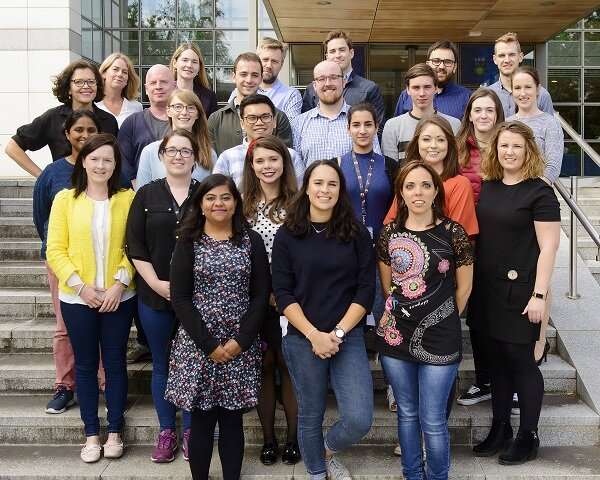
Researchers in the UCD Diabetes Complications Research Centre and their international collaborators have identified 16 regions of the human genome linked with diabetic kidney disease (DKD), the leading cause of kidney disease that can end in organ failure.
This is the largest ever study carried out to look at the genetics of DKD. It involved 19,406 individuals of European descent with type 1 diabetes, with and without kidney disease.
Many individuals with diabetes develop kidney disease despite tight control of their blood sugar levels. Others can maintain normal kidney function despite long-term high blood sugar levels. Although studies have shown that DKD has a genetic component, little was known about the genes involved until now.
This research study set out to uncover genetic differences (or variants) that might explain why some people are susceptible and others relatively resistant to DKD.
The team in UCD Conway Institute, led by Prof. Catherine Godson and Dr. Eoin Brennan, along with Dr. Darrell Andrews and Dr. Ross Doyle, collaborated with colleagues in Queen’s University Belfast (QUB); The Broad Institute and Harvard Medical School, U.S.; and University of Helsinki, to complete a genome-wide association study.
Patients were categorized according to various indicators of DKD such as kidney function tests and biomarkers in urine. The researchers identified 16 novel gene regions linked to DKD, and they provided supportive biological data related to their potential roles in disease.
The strongest signal uncovered was a gene variant that dictates the structure of specialized membranes in the kidney. This COL4A3 gene makes a type of collagen; the long-fiber protein on which cells sit Intriguingly, this variant is associated with protection from DKD. The research team in the UCD Diabetes Complications Research Centre at UCD Conway Institute are now further investigating how this genetic difference can offer protection against DKD.
Some of the other altered genes associated with DKD also fell near collagen protein-related genes and those associated with inflammation and immunity.
Commenting on the research findings, Professor Catherine Godson, UCD School of Medicine and Fellow, UCD Conway Institute said, “Despite our best efforts, the rates of diabetes and associated vascular complications remain unacceptably high. There is an urgent need to predict those individuals with diabetes who are at risk of developing complications, such as DKD and to develop effective drugs to treat the disease in susceptible people.
“These 16 new gene regions linked to DKD provide us with insights as to how this disease develops as well as identifying targets to help prevent and treat diabetic kidney disease. It is interesting to see an association with inflammation and chronic kidney disease associated with diabetes.”
Source: Read Full Article
